
Ingoma~ The Song
Unzima Lomthwalo
Unzima lomthwalo
Ufuna Madoda
Unzima Lomthwalo
Ufuna bafazi
Azikatali noma siyaboshwa
Sizi misel inkululeko
Thina bantwana base Afrika
Sizi misel inkululeko
English translation: "Oh we dont care if we go to jail, it is for freedom that we gladly go. A heavy load a heavy load, it will take some real strength. We are the children of Africa. It is for freedom that we are fighting now. A heavy load, a heavy load, and it will take some real strength."
This was a song of defiance and determination. It has been sung for many years and was also sung at the funerals of the victims of the Soweto Massacre in June of 1976.
A month ago I went to see a rehearsal of a mixed race choir who I heard sang freedom songs primarily of South Africa in Zulu, Xhosa, Sotho and English. They also sing spirituals and gospels. They are called Vukani Mawethu which means People Arise (in Zulu) www.vukani.com. After the first song I was very moved, it felt like a reremebering, but mostly I was touched knowing that this choir which was formed 21 years ago by the late James Madhlope Phillips, has sung out against racism and apartheid and contributed to the international effort to bring about democratic elections for the people of South Africa. In short I was humbled, humbled that they knew more about my country than I did, humbled that they have been doing the work I asked if they would allow me to sing in their choir. I, who knows nothing from alto or tenor who sings only in the shower and sometimes when I do my medicine work. They said yes and so I have been singing my little heart out and each time I sing, hear the songs and the languages, something inside me cracks open and another piece heals, not me, but for all those who came before me, because that's who I am singing to and for. Indigenous people say the song brings the spirit down! And I feel the ancestors rejoicing as they hear the songs. During the fourty years of apartheid when black people were denied the basic rights as Africans they would protest throughout the struggle with song. When a mother went out looking for a job, every day and was sent back empty handed, every day, she would return to her hungry children and sing a dirge to express how she felt. Music played a major part of their liberation.
Vuyisile Mini was a gifted actor, poet and singer, he is remembered for the songs he composed as well as their delivery, an ANC member who was hung, who went to the gallows singing freedom songs. The night before I left for my first trip home n 2006, I had the honor of meeting Hugh Masekela at Yoshis in Oakland. Since 1954 he played music that reflected the agony,conflict and struggles of his personal life and life in South Africa. But it was those struggles, and sorrows, passions and joys that inspired him to make music and influenced his songs. Mama Afrika also known as Miriam Makeba was banned from returning to South Africa in 1963 along with her records after giving an impassioned testimony before the United Nations Committee Against Apartheid.
"Where is the Way" Song and Struggle in South Africa by Helen Q. Kivnick, is a book
and language of the songs in South Africa. It captures the essential link between cultures, peoples strength and courage that helped them to resist oppression and it speaks loudly to the spirit of Ubuntu. Kivnick says it this way "The particular way these people sing -in overlapping parts that work, all together, to produce rhythmic and harmonic fullness-reflects a fundamental African social philospophy: an individual acheives wholeness only in interaction with others. In Zulu the full saying goes umuntu ungumuntu ngabantu ("one can only be fully human through relationships with fellow human beings") " And so it speaks to achievement and purpose being pursued in order to enhance the community as a whole. The author travels with her husband often being the only two white people in a sea of blacks into rural villages, prisons, townships, churches, and communities, sometimes seeking out a lone musician. Her descriptions invite you into the soul of the player, singer or song and how like a magician the performer(s) casts a spell on the people who grow and grow around them as they stop along the way to listen and join in. They are often in tattered rags or hungry, they have often walked three to four hours. She does an incredible job of showing the hope in the people who sing for freedom and a better tomorrow.
The people sing at births and deaths and funerals and weddings. They sing about the men who have left them to work in far away towns, they sing about their life in the village, they sing about the struggle and they sing about unity. She says "they sang in celebration of the pride that years of enforced servitude had not destroyed. And they sang to fan the flame of humanity, burning even inside the land of apartheid" Amongst the Africans, music permeates every cycle of life from birth to death, it's inextricable with the other world the spirit world which is intertwined with the people. It reinforces community as inseparable from the natural world and the individual and children learn about their folk lore through song and stories.
"In black South Africa singing is inseparable from life. And life is in turn, is in turn inseparable
from the country's history, from the religious, political, economic and social currents that have washed the land ever since whites laid claim to that which blacks do not believe can be owned"
Helen Kivnick
When I was in Africa in 2006 I visited the High Sanusi, Shaman Baba Credo Mutwa. His clinic had lost a patient to HIV in the village, and I was invited to the funeral. At least a hundred people showed up. I asked how the people got there, as I know they did not have cars, they had walked for miles, I asked how they knew about the funeral as I knew some did not have phones, word of mouth and I asked if all of these people knew this man and they said no but they were welcome anyway. I, a stranger and obvious a tourist was invited to sit in the front of this tiny church with the family which could not hold all these people. They sang and they sang and they sang in harmony in chorus with beautiful melodic rhythms. It was the best acapella I have heard. It was some of the best rhythm I had ever heard and they were some of the most moving songs I had ever heard. I did not know this man or understand the language but I became part of the community without suspicion or questions and I wept for a stranger and for the love that welled inside of me for all these people who welcomed me in their midst. They had not rehearsed, they did not know each other but they knew how to unify in song, they knew how to grieve together in song and they knew how to honor the death as a community in song. They believe that if you mourn a person for too long it weakens the spirit, so at funerals they did not cry they sang.
When I asked my Zulu grandmother last year what helped her family through apartheid she said " we were lucky, we had each other and we sang" Please watch Amandla, it is a beautiful story about the vital role music played in the struggle to eradicate apartheid in South Africa. It was the power of song when crowds were gathered that often scared policemen who thought the crowd was getting out of control sometimes opening fire. So praise to Kivnick who "gets it right"! Joseph Shabalala(Leader of Ladysmith Black Mambazo) praise to Vukani Mawethu for keeping the flame burning for others in the USA and praise to those people everywhere who lift up their voices open their hearts and continue to sing for their right to be free spirits. AMANDLA~Power to the people!

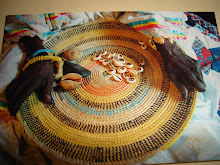











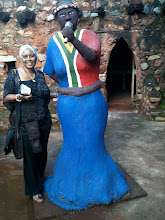











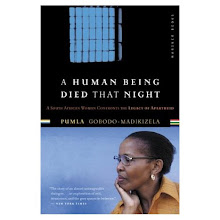

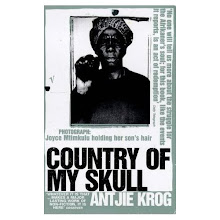
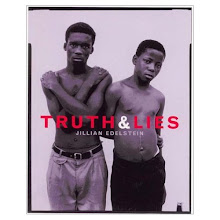


























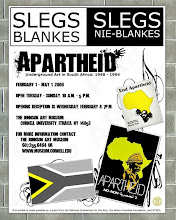




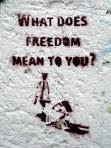






















3 comments:
intersring blog
best regards
I was wondering if you could specify which language the opening song was in?
zulu thanks for reading
Post a Comment